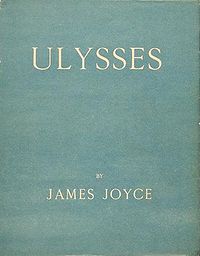
All of the narrative action in James Joyce’s monsterpiece of a novel Ulysses takes place on a single day—June 16, 1904—to commemorate the day that Joyce met his wife, Nora Barnacle. Today, fans of the book celebrate that date as Bloomsday.
Ulysses is a book of limitless possibility. Joyce spent seven years writing it, who knows how long researching it, and once famously told a friend, “In Ulysses I have seen life clearly, I think, and as a whole.” Ulysses is made to be explored by a variety of perspectives. The layering of stories that create open space for interpretation, the conflicting voices throughout the narration—it should be approached from multiple angles. If it’s a book about life “as a whole” then how can you do anything other than discuss what can’t possibly be figured out absolutely? How could we ever close the book on interpretation?
Anyway, the question on this Bloomsday is: What was Joyce’s contact with Buddhist thought?
Tricycle‘s Editor and Publisher James Shaheen once asked this question of one of his old Berkeley English Professors, John Bishop, after finding a passage from Finnegans Wake that is a clear reference to the 12 links of dependent origination (pratityasamutpada).
From Finnegans Wake:
In the ignorance that implies impression that knits knowledge that finds the nameform that whets the wits that convey contacts that sweeten sensation that drives desire that adheres to attachment that dogs death that bitches birth that entails the ensuance of existentially.
Bishop had this to say of a Buddhist influence on Joyce:
Joyce was indeed interested in Buddhism, in obscure ways, by the time he got around to writing Finnegans Wake. There are references to and quotations from several Life-of-Buddha-type works, and a number of Buddhist terms throughout. The hero of Finnegans Wake is said to be “nearvanashed” because he is asleep. My intuition is that Joyce got interested in Buddhism (and other Eastern religions) at the time he was writing the Wake because Eastern thought tends to regard as higher states of existence those that Western thought regards as lower.
Thank you for subscribing to Tricycle! As a nonprofit, we depend on readers like you to keep Buddhist teachings and practices widely available.